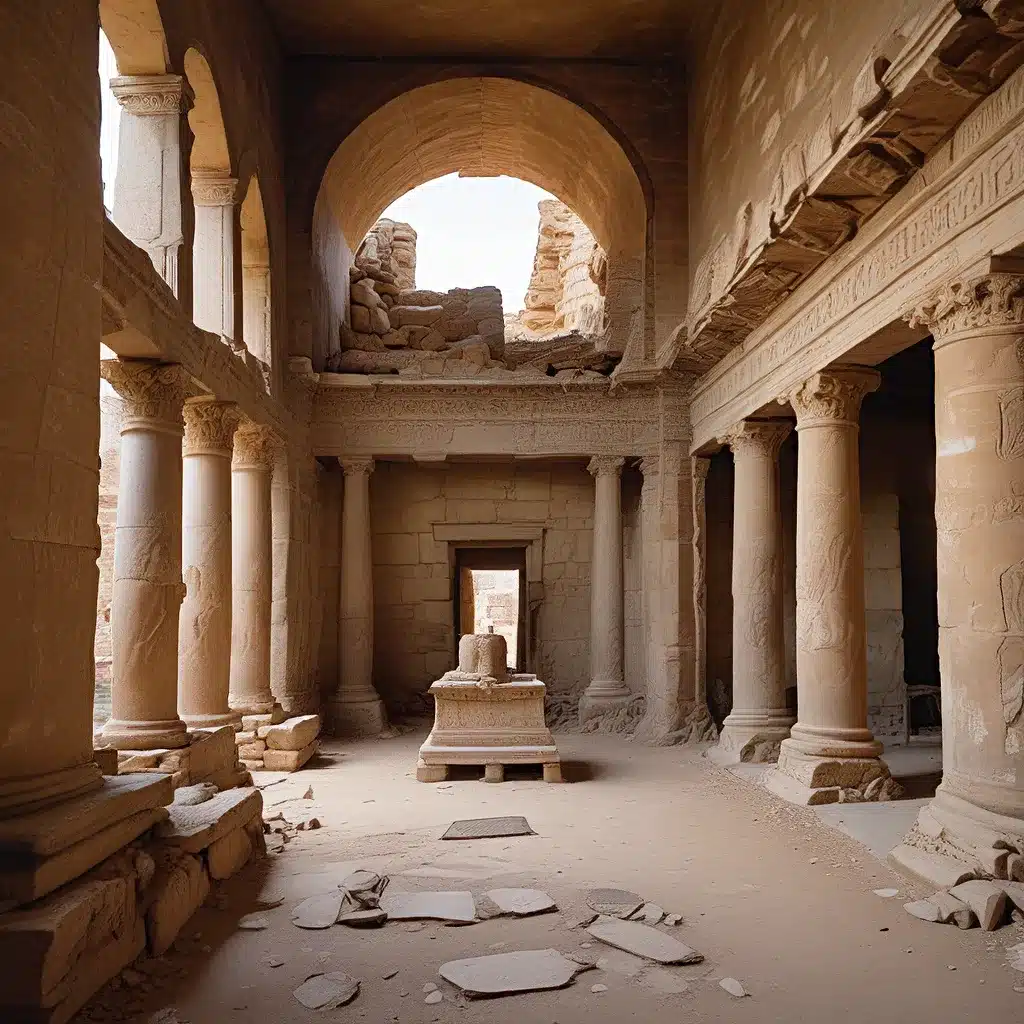
Uncovering the Past: Transformative Archaeological Discoveries
In the ever-evolving landscape of ancient history, the field of archaeology continues to captivate and intrigue scholars, enthusiasts, and the general public alike. From the monumental ruins of lost civilizations to the unearthing of long-forgotten artifacts, each new discovery offers a tantalizing glimpse into the lives, beliefs, and achievements of our ancestors. As we delve deeper into these ancient worlds, we find ourselves confronted with the complex and often challenging legacies of past archaeological practices, many of which were shaped by the colonial and imperialist agendas of bygone eras.
The Lost Kingdoms takes a closer look at the transformative archaeological discoveries that have shaped our understanding of the past, while also exploring the ethical and cultural implications of how these legacies have been preserved and presented. Join us as we embark on a journey through time, uncovering the stories behind the relics that have captivated the world and the ongoing efforts to ensure their rightful heritage is upheld.
Rediscovering Ancient Civilizations: The Allure of Egyptology
One of the most captivating fields of archaeological study is undoubtedly Egyptology, the exploration of the ancient Egyptian civilization. The grandeur of the Pyramids, the enigmatic Sphinx, and the opulent tombs of the pharaohs have long captured the imagination of people around the globe. However, the history of Egyptology is inextricably linked to the colonial and imperialist agendas of the 19th and 20th centuries, when European powers sought to exert control over the region and its cultural heritage.
The establishment of Egyptology as an academic discipline was largely driven by the colonialist interests of European nations, who saw the ancient Egyptian civilization as a means to assert their own cultural and political superiority. This exploitation of Egypt’s past was manifested in the systematic looting of archaeological sites, the removal of artifacts to be displayed in European museums, and the exclusion of local Egyptian scholars from the field.
Despite these troubling origins, Egyptology has continued to captivate the world, with new discoveries and advancements in the field shedding light on the rich and complex history of ancient Egypt. However, the legacy of colonialism in Egyptology has not gone unnoticed, and there is a growing movement to decolonize the discipline and repatriate the artifacts that were taken from their rightful home.
Decolonizing Archaeology: Restoring Cultural Heritage
The decolonization of archaeology is a critical and ongoing process that seeks to address the imbalances and injustices that have long plagued the field. This movement challenges the Eurocentrism and elitism that have historically dominated archaeological practices, and advocates for a more inclusive and equitable** approach to the study of the past.
One of the key aspects of this decolonization effort is the repatriation of artifacts and cultural heritage to their countries of origin. Thousands of ancient Egyptian artifacts are currently housed in museums and private collections around the world, often obtained through unethical or questionable means during the colonial era. The return of these relics to Egypt is seen as a crucial step in restoring the country’s cultural sovereignty and honoring the rightful ownership of its heritage.
Alongside the repatriation efforts, there is also a push to reevaluate the practices and methodologies employed in archaeological research, with a focus on incorporating the perspectives and knowledge of local and indigenous communities. This approach aims to challenge the Eurocentric bias that has long dominated the field, and to foster a more collaborative and inclusive understanding of the past.
Navigating the Complexities of Excavation and Preservation
The preservation and protection of archaeological sites and artifacts is another critical aspect of the decolonization movement in archaeology. Looting, vandalism, and development pressures have long threatened the integrity of ancient sites, often disproportionately impacting marginalized communities and developing nations.
Efforts to address these challenges have included the strengthening of local heritage management systems, the training of community-based stewards, and the development of international agreements and protocols to curb the illicit trade of cultural property. These initiatives recognize the vital role that local communities play in the preservation of their cultural heritage, and empower them to take an active role in the protection of their past.
Bridging the Gap: Fostering Collaborative Approaches in Archaeology
As the decolonization movement in archaeology continues to gain momentum, there is a growing recognition of the need for collaborative and inclusive approaches to the study and preservation of the past. This involves not only the repatriation of artifacts and the reevaluation of research methodologies, but also the active inclusion of local and indigenous communities in the decision-making process.
By fostering these collaborative partnerships, archaeologists can learn from the traditional knowledge and stewardship practices of local communities, while also empowering them to take an active role in the preservation of their cultural heritage. This approach not only addresses the colonial legacies of the past, but also paves the way for a more equitable and sustainable future for the study and protection of our shared human history.
As we continue to uncover the secrets of the past, it is critical that we acknowledge and confront the complex legacies that have shaped the field of archaeology. By embracing a more inclusive and collaborative approach, we can ensure that the preservation and presentation of our shared cultural heritage is a reflection of the diverse voices and perspectives that have contributed to our understanding of the past.


